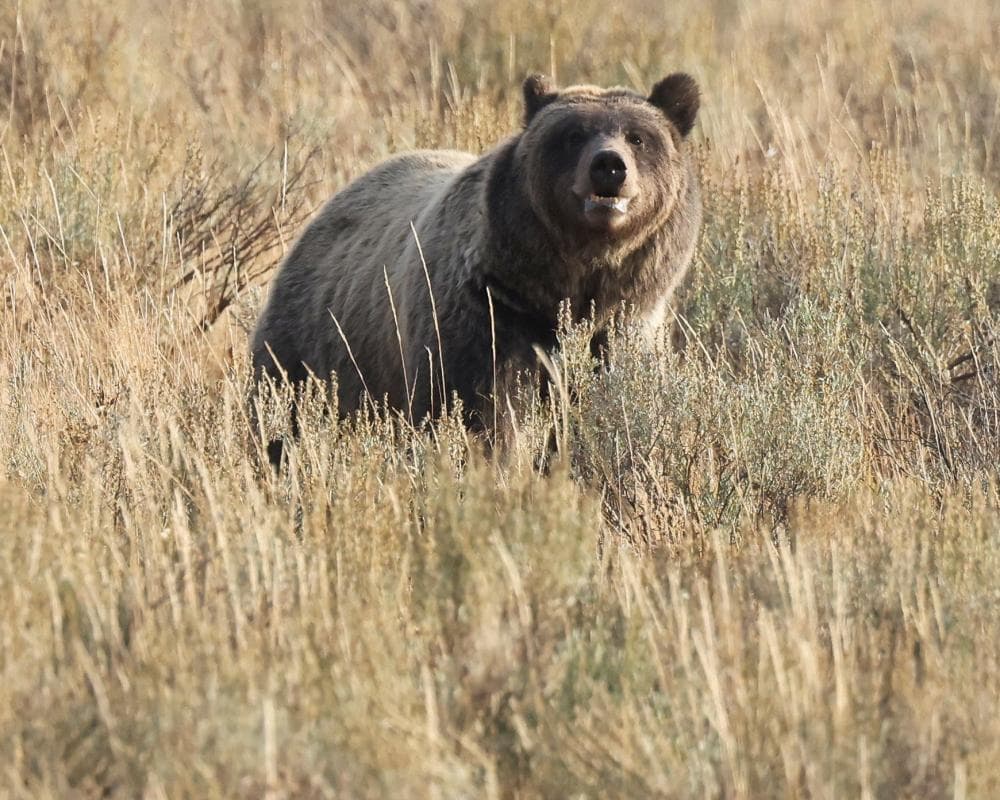Eleven injured after grizzly bear attacks schoolchildren and teachers in Canada

Click any word to translate
Original article by Leyland Cecco in Toronto and agencies
Eleven people were injured, two of them critically, when a grizzly bear attacked a group of schoolchildren and teachers on a walking trail in British Columbia, Canada.
The attack happened on Thursday in Bella Coola, 435 miles (700km) north-west of Vancouver. The Nuxalk Nation said the “aggressive bear” remained on the loose and police and conservation officers were on the scene.
On Friday, the province’s conservation officer service said the incident happened after the bear emerged from the forest and attacked a group of students and teachers eating lunch on a trail.
The province’s environment minister, Tamara Davidson, told reporters multiple teachers “took great risk” when they intervened to protect children during the attack. “They were well prepared, and they were the true heroes.”
Three children were taken to hospital after the attack, including two with critical injuries. An adult was also hospitalised in Vancouver. Seven others were treated in the community.
Conservation officers worked overnight to find the grizzly but have not yet located the bear. Their initial findings of their investigation suggest the bear may have previously been injured.
“I really need to stress how dangerous this situation is with this bear at large,” said Insp Kevin Van Damme, of the conservation officer service. “We are doing our best to locate this bear and to capture it.”
Van Damme, who has worked with the conservation service for nearly 25 years, said this was the first time in his career he had seen a grizzly attack a group in this manner.
“This is extremely rare,” he said. “We are trying to determine the behaviour and why the bear acted in the way it did … Thankfully, the teachers were prepared. They did everything they needed to do and they avoided serious injuries to others.”
Nuxalk Nation chief Samuel Schooner said in a statement the community was “devastated” for those involved in the attack. “All individuals involved are receiving medical support and our priority is to ensure that they are safe.”
The nation also said that officers were armed and patrolling the community, with more conservation officers headed to the area. The nation also advised people to stay inside and had quickly set up a ride service as a way of preventing people from moving around outside.
Bella Coola, a community of roughly 2,100 people, sits at the end of a fjord along the province’s central coast. Its remote location and abundant food sources mean that grizzly bears are a common sight in the region, informally known as the Great Bear Rainforest.
Veronica Schooner, a parent of one of the children, said a lot of people tried to stop the attack but one male teacher “got the whole brunt of it” and was among the people taken by helicopter from the scene.
Schooner’s 10-year-old son, Alvarez, was in the class of fourth- and fifth-graders and was so close to the animal “he even felt its fur”, she said.
“He said that bear ran so close to him, but it was going after somebody else,” Schooner said.
She added that some children were hit with bear spray as the teachers fought off the grizzly and Alvarez was limping and his shoes were muddy from running for safety. Her son’s thoughts, however, were with his classmates.
“He keeps crying for his friends, and oh my goodness, right away he started praying for his friends,” she said.
Acwsalcta school, an independent school run by Nuxalk Nation in Bella Coola, said in a Facebook post that the school would be closed on Friday and counseling made available.
“It’s hard to know what to say during this very difficult time. We are so grateful for our team and our students,” the post said.
Grizzlies, which have coexisted with the Nuxalk Nation for generations, have a deep cultural significance for many of the First Nations along the Pacific coast.
Many of those communities were on the frontlines of a successful fight to end the trophy hunting of grizzly bears in British Columbia. The ban went into effect in November 2017. But First Nations can still harvest grizzly bears under their Aboriginal rights for food, social or ceremonial purposes, or treaty rights.
Attacks by grizzly bears in the province are rare, but British Columbia has seen a string maulings in recent months. Three grizzly attacks have been reported around the province in the last couple months. Of the three incidents since September one was fatal: hunter Joe Pendry was attacked by a sow and two large cubs. He fought off the mother, who later died of her injuries. Pendry succumbed to his own extensive injuries three weeks after the 2 October attack.
The Nuxalk bear safe program, which applies non-lethal approaches to preventing and mitigating conflict, also acknowledges that incidents need to be treated on a “case by case basis”.